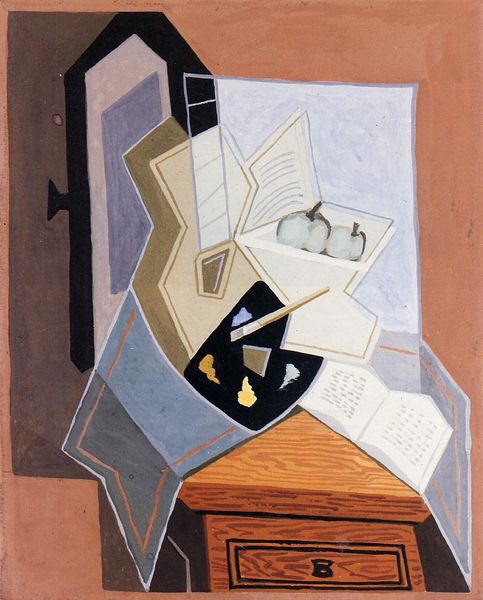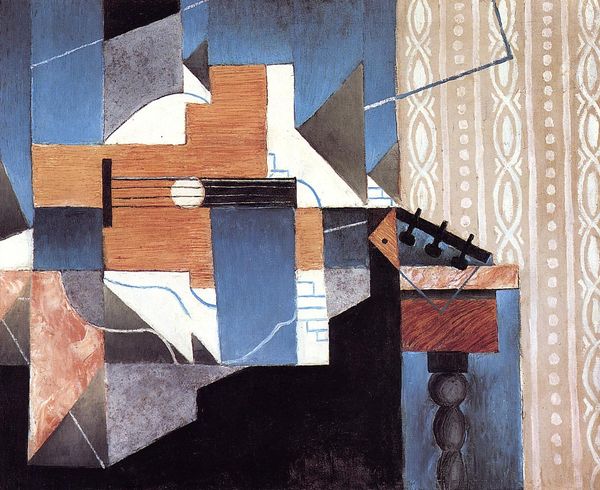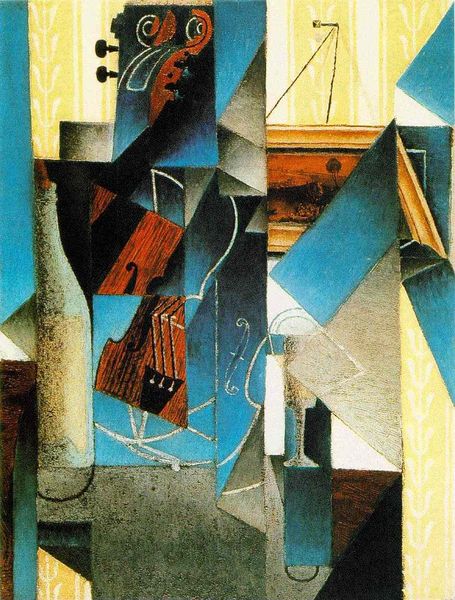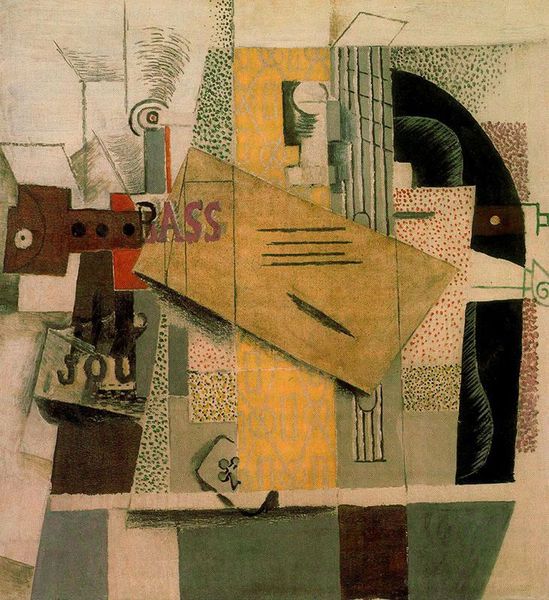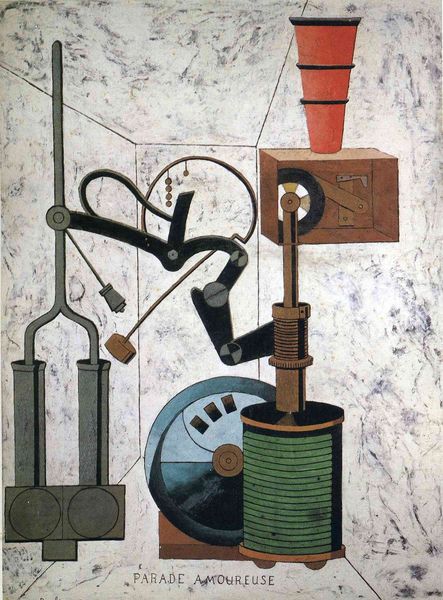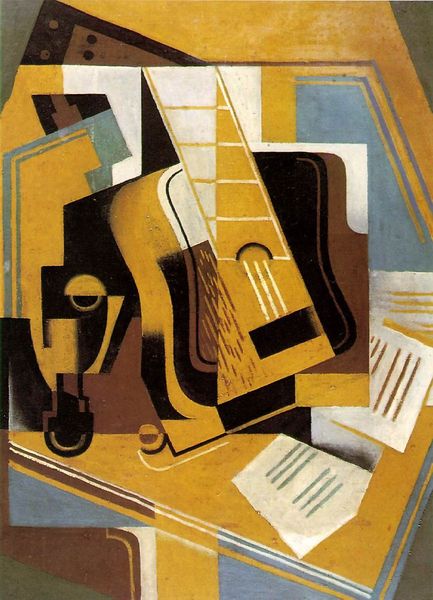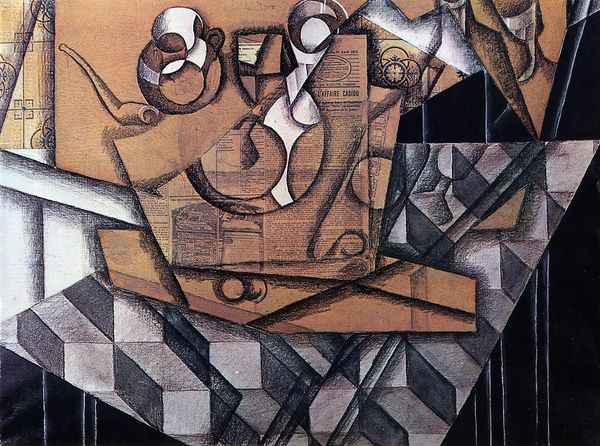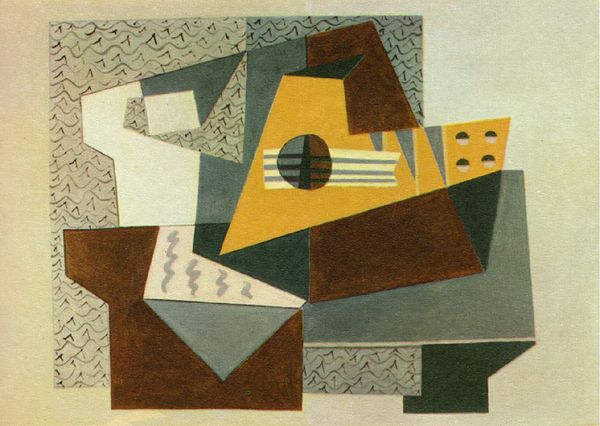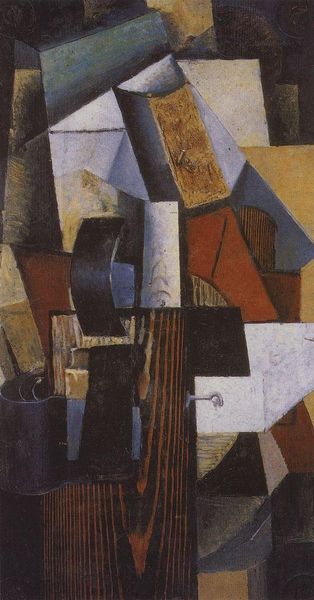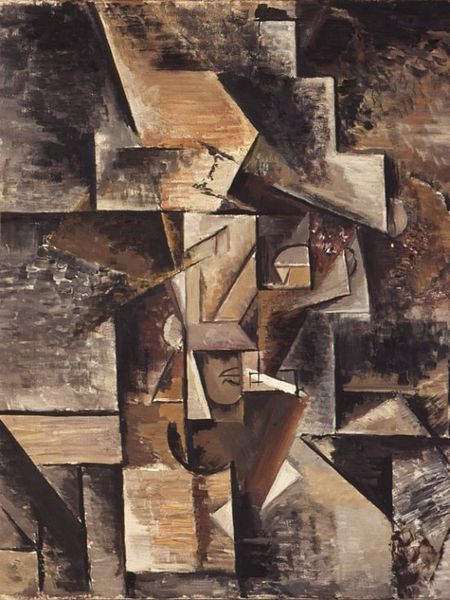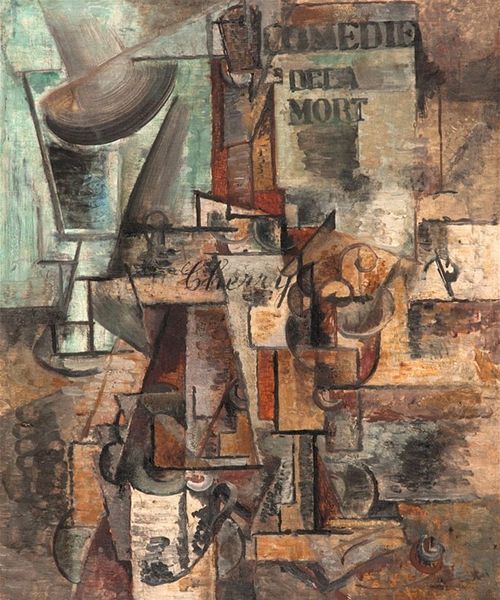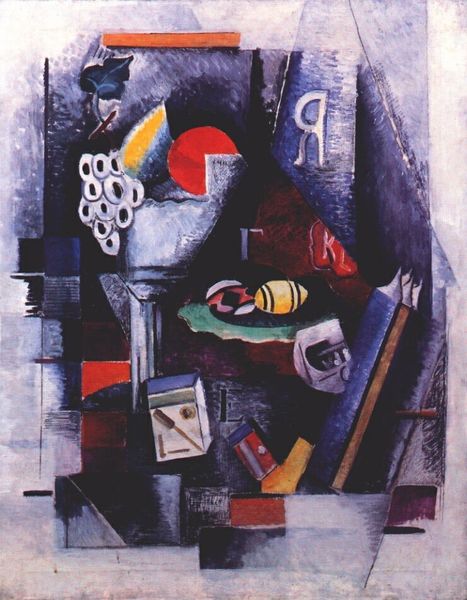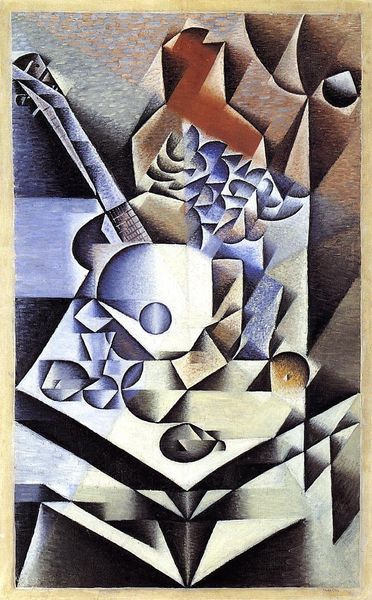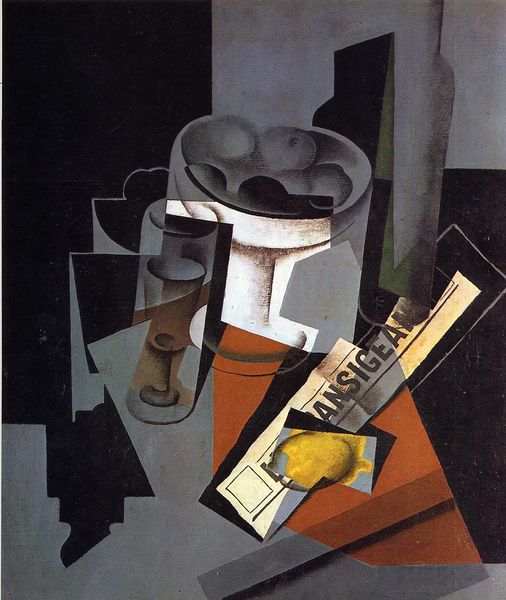
painting, oil-paint
#
cubism
#
abstract painting
#
painting
#
oil-paint
#
form
#
oil painting
#
studio composition
#
abstraction
#
line
Dimensions: 41 x 33 cm
Copyright: Public domain
Editor: Juan Gris's "The Book," painted in 1913 using oil paint, immediately strikes me as a challenge to conventional representation. It's as if he's deconstructed the act of reading, presenting fragments instead of a cohesive narrative. What’s your take on this work, especially regarding its engagement with the politics of representation at the time? Curator: It's a fantastic point. "The Book" arrives amidst heated debates about representation. Cubism, by fragmenting the visible world, forced viewers to actively reconstruct the image, challenging the authority of academic painting. Gris isn't just depicting a book; he's using it as a site to explore how we construct meaning from the world around us, mirroring the very act of interpreting information from sociopolitical structures. Editor: So the act of deconstructing the image mirrors a deconstruction of societal norms? Is the book itself significant, beyond just being a still life object? Curator: Absolutely. The "book," a carrier of knowledge and power, becomes an object of scrutiny. Consider the rise of mass media and propaganda during this era. By dissecting the book, Gris perhaps alludes to the constructed nature of truth and the need for critical engagement with information—a message highly relevant amidst growing social unrest and anxieties preceding the First World War. Editor: It sounds like Gris is challenging the viewer to become an active participant in the interpretation, pushing back against passive acceptance. Curator: Precisely. He invites us to question the sources of authority and the nature of seeing itself. It mirrors, to some extent, the growing public skepticism towards established institutions and the demand for greater agency in shaping social realities. What do you make of the visual weight of the objects? The book against, say, the wine glass? Editor: The fragmented glass seems to symbolize the fragility of refined culture during those turbulent years, while the deconstructed book points to an emerging need to reinterpret knowledge itself. I appreciate how much socio-political context is embedded within this seemingly simple composition. Curator: Indeed, reflecting on "The Book" has reminded me how Cubism wasn't merely an aesthetic movement but also a form of critical social commentary. The politics are inherent. Editor: I see it now too. Art as not only reflecting but actively shaping public perception.
Comments
No comments
Be the first to comment and join the conversation on the ultimate creative platform.
